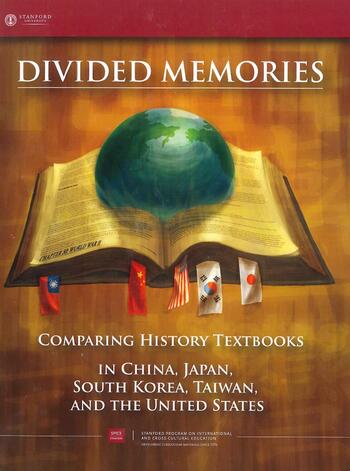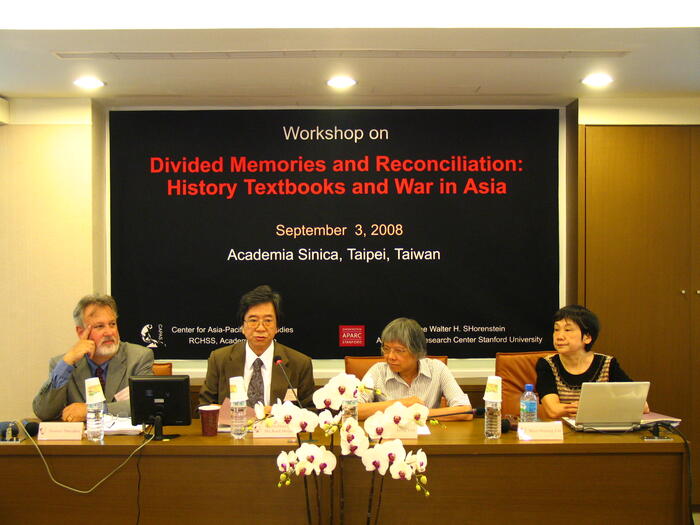ŌĆ£From Cold War to Hot Peace: An Ambassador in PutinŌĆÖs Russia,ŌĆØ a book talk for educators by Ambassador Michael McFaul
On January 18, 2019, and the (91│į╣Ž) hosted a book talk by Professor Michael McFaul. McFaul served for five years in the Obama administration, first as Special Assistant to the President and Senior Director for Russian and Eurasian Affairs at the National Security Council (2009ŌĆō2012), and then as U.S. Ambassador to the Russian Federation (2012ŌĆō2014). He is also one of several contributing scholars to Inside the Kremlin, 91│į╣ŽŌĆÖs lesson plan on Soviet and Russian history. McFaulŌĆÖs talk was given to approximately 30 community college and secondary school educators from the San Francisco Bay Area. Three of the educatorsŌĆöNancy Willet, Phillip Tran, Don Uy-BarretaŌĆöare 2018ŌĆō19 Stanford (EPIC) Fellows, and this article highlights their reflections.
Ambassador McFaul has described From Cold War to Hot Peace as ŌĆ£three books in one.ŌĆØ First, it is a book that explains the arc of U.S.ŌĆōRussia relations since the end of the Cold War. Second, it a book that describes the ŌĆ£resetŌĆØ in U.S.ŌĆōRussia relations and its aftermath during the Obama presidency. Third, it is a book about McFaulŌĆÖs life that describes how his involvement with the debate team at Bozeman High School, Montana, sparked his interest in Russia and led to his subsequent study of Russia at 91│į╣Ž, Oxford University, and in Russia itself. During his talk, he touched upon all three.
McFaulŌĆÖs reflections not only provided the educators with important content on U.S.ŌĆōRussia relations and insights from his youth to his ambassadorship, but also prompted the educators to consider effective teaching and pedagogical strategies. McFaulŌĆÖs use of storytelling, presentation of multiple perspectives, emphasis on interdisciplinarity, and sharing of first-hand accounts gave the educators a glimpse into McFaul not only as an academic and diplomat but as a teacher.
EPIC Fellow Nancy Willet, Co-chair of the Business & Information Systems Department, College of Marin, noted, ŌĆ£I was most impressed with Ambassador McFaulŌĆÖs engaging storytelling. His first-hand insights of his time spent studying and working in Russia challenged some of my misguided assumptions and helped expand my understanding of the complexities of U.S.ŌĆōRussia relations. I grew up during the Cold War and the Ambassador disrupted some of my deep-rooted misconceptions about the former Soviet Union and further opened my mind for a more nuanced understanding.ŌĆØ In a follow-up communication, Willet said that she is devouring From Cold War to Hot Peace and plans to share McFaulŌĆÖs scholarly insights with her law studentsŌĆöparticularly when discussing democracy and rule of lawŌĆöhere and abroad.
EPIC Fellow Philip Tran, Instructor of Business, San Jose City College, remarked that ŌĆ£Ambassador McFaulŌĆÖs talk reinforced the complicated notion of human relations and the importance of an interdisciplinary study of itŌĆöincluding political science, business, economics, etc. Interdisciplinarity is a key to grasping a better understanding of human relations.ŌĆØ He continued by noting that the biggest take-away from McFaulŌĆÖs talk was that it cautioned him as a teacher to ŌĆ£refrain from the natural ŌĆśknee-jerkŌĆÖ reactions and to seek a deeper understanding of the situation from all sidesŌĆ”. Even though Ambassador McFaul is a subject matter expert on U.S.ŌĆōRussian relations, he displayed humility and acceptance of ambiguity in his responses to some of the toughest questions regarding the U.S. relationship with Russia and Vladimir Putin.ŌĆØ
EPIC Fellow Don Uy-Barreta, Instructor of Economics, De Anza College, reflected upon the significance of sharing first-hand experiences with students. He noted that ŌĆ£Reading about Ambassador McFaulŌĆÖs experience is very informative, but being able to ask questions and hearing it from the source is a whole different level of experience. As he was telling us about his days in Russia, it felt like I was right next to him, and it gave me goosebumps.ŌĆØ Uy-Barreta found inspiration in McFaulŌĆÖs talk as he prepares for his presentation on global economics at the EPIC Symposium on May 18, 2019 during which the 2018ŌĆō19 EPIC Fellows will present their research at Stanford.
McFaul has given numerous talks on From Cold War to Hot Peace but this was the first geared to an audience of educators. As I observed his talk, I was primarily attentive to the pedagogical strategies that he utilized to engage the educators. For me, his effective teaching made the history and insights in From Cold War to Hot Peace come alive and feel more like ŌĆ£four books in one.ŌĆØ
This book talk was made possible by a U.S. Department of Education Title VI grant that provides professional development opportunities for KŌĆō12 teachers and community college instructors. Among these opportunities is EPIC, a program that provides one-year fellowships to community college instructors. Title VI grant collaborators include Stanford Global Studies (SGS), 91│į╣Ž, , and the Stanford Graduate School of EducationŌĆÖs . SGSŌĆÖs Denise Geraci and 91│į╣ŽŌĆÖs Jonas Edman organized and facilitated the talk by Ambassador McFaul.
91│į╣Ž also offers professional development opportunities for middle school teachers and high school teachers. To stay informed of 91│į╣Ž news, or follow us on and .





